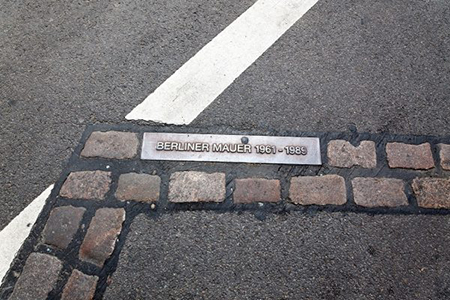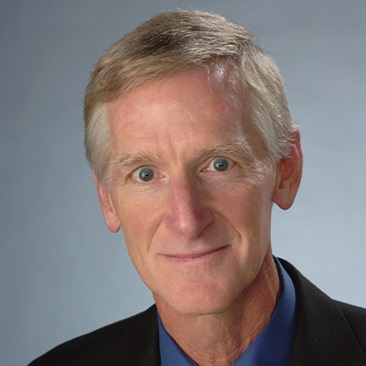What Is the Legacy of the ‘Fall’ of the Berlin Wall 35 Years On? Woodard Shares Insights
December 16, 2024
SU News
Thirty-five years since it was breached by East Germans after ongoing protests and a bureaucratic mixup, the once-imposing Berlin Wall has been reduced to only remnants of its former self.
Although the wall’s physical presence is diminished, the “fall” of the Berlin Wall on Nov. 9, 1989, remains a significant moment in history.
Lauren Woodard, assistant professor of anthropology in the Maxwell School of Citizenship and Public Affairs, says the event was just one of several across communist Eastern Europe that showed how solidarity among people could foster resistance and bring change.
“After growing resistance across the region, especially in neighboring Poland, East Germans had mobilized throughout the summer and fall of 1989 to visit West Germany,” says Woodard, who is also a senior research associate in the Center for European Studies within the Moynihan Institute of Global Affairs. “There was a lot of confusion about crossing the border in this moment, amid growing protest and political transformations in the region (Solidarity’s successful movement in neighboring Poland and amid Mikhail Gorbachev’s perestroika in the Soviet Union).”
On Nov. 9, 1989, during a press conference, an East German official inadvertently said that a new policy allowing travel outside of East Germany could happen immediately without restrictions, when in fact the policy was going to be implemented the following day with prerequisites. Tens of thousands of people went to the wall, to various checkpoints, and eventually one opened, where West Germans and East Germans celebrated together.
While the wall didn’t actually “fall” that day, the figurative collapse was symbolic of that period when the populations of Eastern Europe struggled out from the grip of communism.
“This is a starting point in my class [Transformations of Eastern Europe] to understand this moment as one of euphoria and celebration, the idea of the end of the Cold War, and the success of collective action, but one that was also deeply destabilizing for many people, as their economies crashed and they navigated profound social, economic and political transformations throughout the 1990s,” Woodard says.
In the following Q&A, Woodard shares her insights on the fall of the Berlin Wall.
Why was that moment when the Berlin Wall was breached such a visceral moment for people all over the world?
People responded to the “fall” of the Berlin Wall as a moment of victory, that demonstrated how resistance could be achieved through cooperation, as demonstrated earlier that year by the Solidarity Movement in Poland, demonstrations in Hungary and the Singing Revolution, in which nearly two million people held hands across Estonia, Latvia and Lithuania, calling for their independence from the Soviet Union. The “fall” of the Berlin Wall symbolized how people could work together and form coalitions to resist, providing hope to everyone for change.
How did the lives of citizens in those countries behind the Iron Curtain change once the wall came down?
The answer to this question varies based on location. I will speak from my own experiences conducting research in Russia and Kazakhstan, two former Soviet countries. While many people experienced the fall of the Berlin Wall and the collapse of the Soviet Union as euphoric—this sense of resistance and political collaboration across Cold War boundaries, experienced at the same time as romantic ideas of globalization and the decline of nation-states—the 1990s were a period of profound political, economic and social transformations that were deeply destabilizing. “Shock” therapy, meant to transition former communist countries to democracy and a global market economy, led to profound disenfranchisement and inequality.

As an American college student in 2010, studying abroad in Russia for the first time, I did not expect my host family and my friends to speak nostalgically of the Soviet Union and to genuinely support Vladimir Putin. They described great hardship of the 1990s—long lines, financial and political uncertainty, which factored into parents’ decisions whether to start a family.
They were also deeply disappointed with the West. They had believed that with the end of the Cold War, there would no longer be a divide between East and West, that there would be no need for NATO, and that the European Union’s (EU) expansion might include them too, since they were Russian and, therefore, European.
When NATO and the EU expanded to include Estonia, Latvia and Lithuania, but not Russia, Ukraine or Georgia, for example, they felt isolated and othered. Meanwhile, they associated stability with Vladimir Putin’s presidency, even if it came at the cost of challenges to free speech.
Although the Cold War may have ended in 1989 and 1991, divisions reemerged in new ways in the 1990s that crystallized in the 2000s, leading to today’s present situation, in which Russia has isolated itself globally once again, while attacking its neighbor, Ukraine, as part of a larger project of Russian imperialism, that is markedly different from the Soviet project of communism. This is the subject of my book project—how people navigate these profound changes on an everyday level.
What have been the long-lasting impacts for Eastern Europe and all of Europe?
I think what gets lost is the impact of the end of communism for Western Europe and the United States. Without the Soviet Union as the U.S.’s foil, the U.S. floundered throughout the 1990s to identify who we were as a country and what we stood for. I think this is partially why we latched onto the idea of “global terrorism,” as an alternative to construct ourselves against, with serious implications.
With the Iraq War, we lost serious credibility as a global leader that will take decades to recover from. It is here that we see the reemergence of Russia as an illiberal alternative, aligned with China, Iran and other actors to challenge American hegemony.
By Kathleen Haley
Related News
Commentary

Apr 23, 2025
Commentary

Apr 18, 2025
Commentary

Apr 17, 2025
Research

Apr 17, 2025
